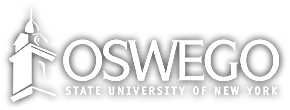The best and safest thing is to keep a balance in your life, acknowledge the great powers around us and in us. If you can do that, and live that way, you are really a wise man. –Euripides
Hi readers,
The end of the semester is almost upon us, and yet I’ve felt its ominous presence since day one. This has by far been the busiest three and a half months of my life, and I’d like to tell you about it.
My previous three semesters here at Oswego I feel had been building up to this one. Those were practice, this is the real deal – vice president of a student organization, pulling it up from the ashes (with the help of 5 great friends!), 5 upper division courses, 3 QUEST presentations, and one vendetta to make a real change in school policy later, it’s almost over. I’ve made more Prezi’s and pushed more code to Github in this one semester than I have in my entire life before it. And through all of this work, I’ve seen an alternative perspective, the other side of the coin on an important life issue: balance.
It all started at the end of last semester, when Students for Global Change was in shambles. The officers had stopped coming to meetings, and worse, had entirely given up on the organization without telling anyone. I had been sitting at the club table that semester (since no one else wanted to), promoting my policy proposal for a change in how we handle public art on campus. All of a sudden, I was asked to help get the club organized and back on track. This was no easy task, but I managed to gather a ragtag group of friends to help me out and act as my officers. Since then, I (along with them) have been working nonstop to bring this club back to life. It exists for a good reason, and we showed that to a lot of people on campus this semester. We worked really hard with absolutely no budget to put on a weeklong series of events for Mother Earth Week, culminating in what was possibly the most anticlimactic tree planting ceremony ever put on for Arbor Day. But, what is important is that the tree was planted. It was difficult, but we got it done.
The week previous was QUEST week. Many students are unaware of exactly what QUEST is, which is a shame; thankfully, however, just as many not only are aware, but are active participants in that day-long celebration of knowledge that we share with our community every year. This year, I presented two class projects and my own public art project, and in between presentations I manned a table at the sustainability fair, which was also happening that day.
In between my long nights working on classwork this semester, I spent my days making connections and pushing for a real change in the way this institution treats the visual arts. After lobbying Student Association all last semester, I focused my efforts this time around on the faculty and the administration, asking them to think about making a change. And while significant progress has been made, the lesson I’ve learned is that I am only one person, and I can’t do everything – as much as I would like to. I quickly realized that I do have limits to my energy and ability, and I quickly became overwhelmed and exhausted for the first time since arriving at Oswego after being here for almost two years.
Before coming to Oswego, I believed my problem was that I didn’t want to work enough. Now I find myself a workaholic, and am stressed out in the same way, just for a different reason. I was one way before, and now I am on the opposite side of the spectrum. An interesting side effect is that by having experienced both ways of life now, I can more clearly see the center that I need to be at. So, my friends, if I can give you one piece of parting advice this semester, it would be this: find your own personal balance. Find a way to do some things that interest you, and do them well. If you focus your efforts, you will find a new kind of freedom that is better than any other: a mental freedom from yourself.
Thanks for reading, and may you find something insightful or meaningful from this post and from your studies at SUNY Oswego.
Good luck on finals, and have a great summer break everyone!
-Mark






